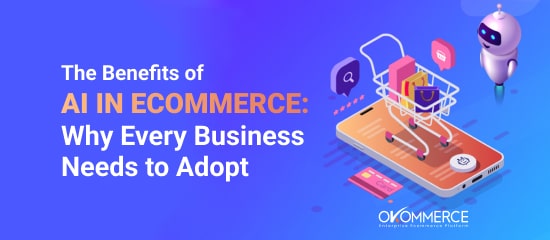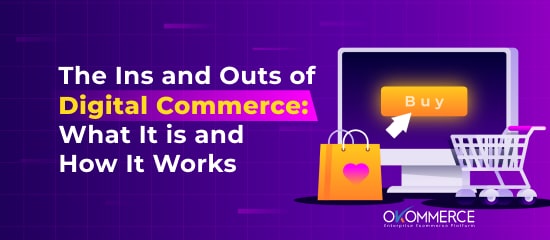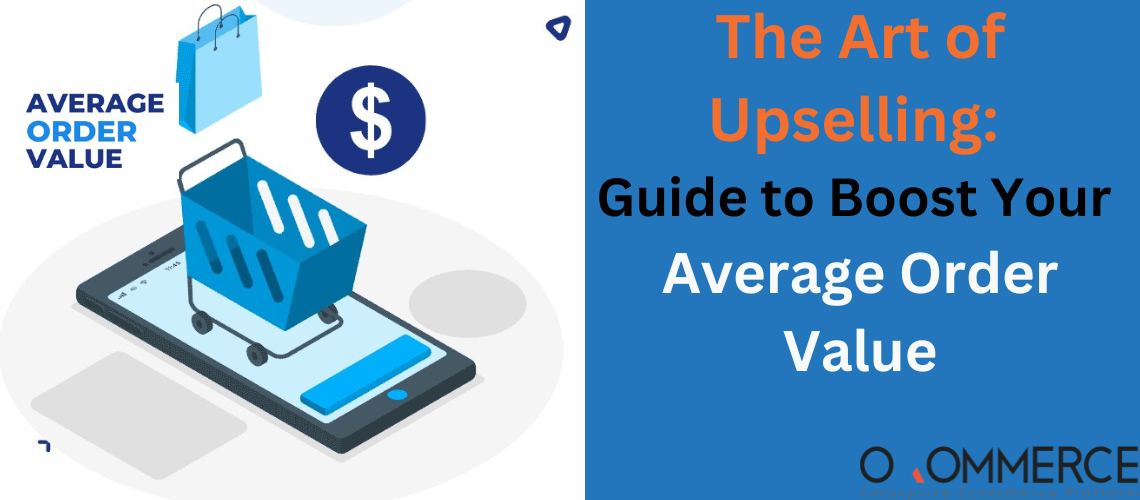Ecommerce Platform Features Every Entrepreneur Should Know
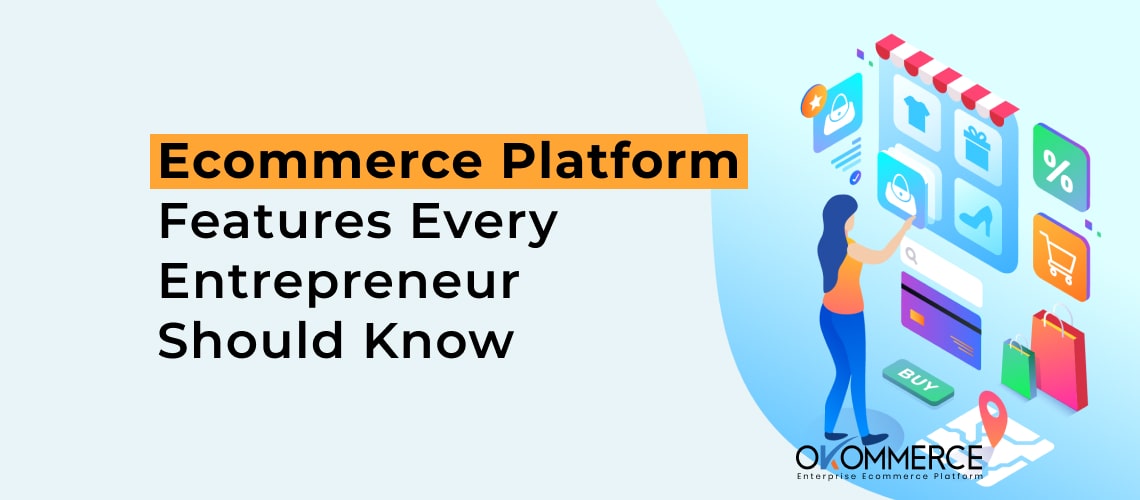
E-commerce platforms have experienced significant growth and innovation in recent years, largely due to the explosive growth of online shopping. With the rise of mobile devices and improved internet connectivity, online shopping has become more convenient and accessible than ever before. As a result, eCommerce platforms have become increasingly sophisticated, offering features such as AI-powered recommendations, personalized shopping experiences, and streamlined checkout processes. In addition, the growth of social media and influencer marketing has led to new integrations with eCommerce platforms, allowing businesses to sell products directly to consumers through social media channels. With the continued evolution of technology and consumer behavior, eCommerce platforms are likely to continue evolving to meet the needs of businesses and consumers alike.
Starting an eCommerce business can be daunting, but with the right platform, it can be an exciting and lucrative venture. Choosing the right e-commerce platform is crucial to the success of your business. With so many options available, it can be challenging to determine which features are essential for your business. In this blog, we will explore the top e-commerce platform features that every entrepreneur should know.
What is an eCommerce Platform?
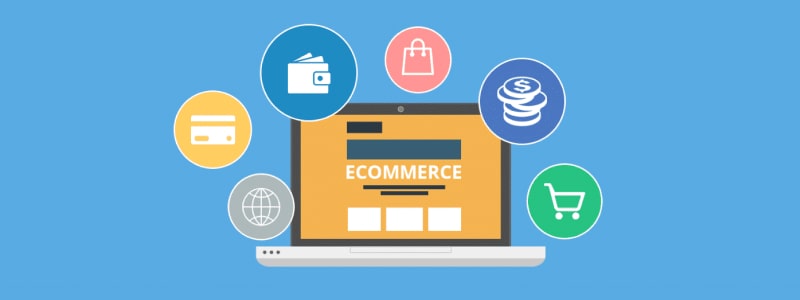
An eCommerce platform is a software application that enables businesses to sell products or services online. It provides a platform for businesses to create and manage an online store, display products, process payments, manage inventory, and handle shipping and other logistical functions. E-commerce platforms typically include a range of features and tools that help businesses create and optimize their online stores, such as website templates, shopping cart functionality, and marketing tools. They may also integrate with other business tools, such as accounting software or customer relationship management (CRM) software. E-commerce platforms have become increasingly popular in recent years, as more businesses have moved online to reach a global audience and take advantage of the convenience of online shopping for consumers.
Why eCommerce Business Needs an eCommerce Platform

An eCommerce platform is a crucial tool for businesses looking to establish an online presence, streamline their operations, and grow their sales online. An eCommerce business needs an eCommerce platform for several reasons, including:
Online Presence:
An eCommerce platform provides an online presence for a business, allowing it to sell products and services on the Internet. This gives businesses the ability to reach a wider audience and expand their customer base beyond their local market.
User-friendly interface:
eCommerce platforms are designed with a user-friendly interface that makes it easy for businesses to manage their online store. This includes adding and updating products, managing orders, and handling payments.
Payment Integration:
Most eCommerce platforms offer payment integration with various payment gateways, making it easy for businesses to accept payments online.
Inventory Management:
eCommerce platforms also provide inventory management features that allow businesses to track their stock levels, manage product variations, and automate stock reordering.
Marketing Tools:
eCommerce platforms offer various marketing tools such as SEO, email marketing, and social media integration, which help businesses attract new customers and retain existing ones.
Analytics:
eCommerce platforms provide analytics tools that allow businesses to track their website traffic, customer behavior, and sales performance. This information helps businesses make informed decisions about their online store.
The Top Five eCommerce Platforms
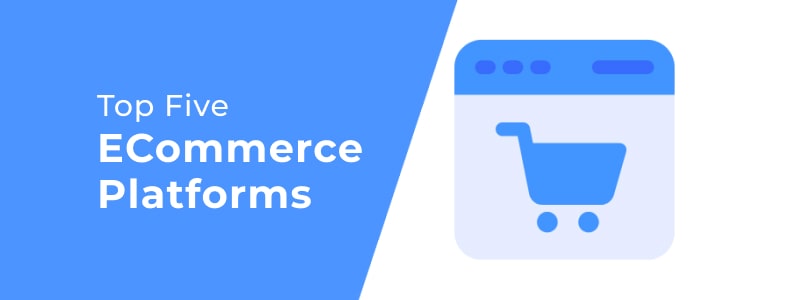
There are many eCommerce platforms available in the market, but here are the top five eCommerce platforms based on their popularity, features, and ease of use:
Okommerce
Okommerce is one of a kind enterprise eCommerce solution that has revolutionized the eCommerce industry. Okommerce is designed keeping large-scale businesses in mind. Okommerce is perfect if you have a large eCommerce store as there are separate modules for easy and efficient management. If you plan on expanding your business in the future, Okommerce has got you covered too. The best thing about Okommerce is its competitive pricing which is hard to beat. Take your eCommerce business to the next level with the secure, fast, reliable, scalable cloud platform today.
Shopify:
Shopify is one of the most popular eCommerce platforms that offers a user-friendly interface and a wide range of features, including customizable templates, secure payment integration, inventory management, and marketing tools. It is ideal for businesses of all sizes, including startups, small businesses, and enterprise-level companies.
WooCommerce:
WooCommerce is a popular eCommerce platform that is integrated with WordPress. It is an open-source platform that offers a range of features, including customizable themes, payment integration, inventory management, and marketing tools. WooCommerce is ideal for businesses that already have a WordPress website and want to add an online store to it.
Magento:
Magento is a powerful eCommerce platform that offers a range of features, including customizable themes, payment integration, inventory management, and marketing tools. It is ideal for businesses that have a large product catalog and require advanced customization and scalability.
BigCommerce:
BigCommerce is a feature-rich eCommerce platform that offers a range of features, including customizable templates, payment integration, inventory management, and marketing tools. It is ideal for businesses that require advanced customization and scalability and want to sell on multiple channels, including social media platforms and marketplaces.
Essential eCommerce Platform Features Every Entrepreneur Needs to Know

When it comes to starting an eCommerce business, choosing the right platform is crucial. Here are some essential eCommerce platform features that every entrepreneur needs to know:
Customizable Templates:
Customizable templates are essential for e-commerce platforms. They allow you to create a unique and professional-looking online store without the need for extensive web design knowledge. Look for a platform that offers a wide range of customizable templates to choose from, or allows you to create your own design from scratch.
Mobile Responsive Design:
In today's world, more people are shopping online using their mobile devices. It is important to have a mobile-responsive design for your e-commerce store to ensure that your website is optimized for mobile devices. This will provide a seamless shopping experience for your customers, regardless of the device they use to access your store.
Catalog:
An e-commerce platform's catalog is at the heart of its online store, and having robust catalog features is essential to providing a smooth and seamless shopping experience for customers. Some of the key catalog features that an e-commerce platform should have include Product Information Management (PIM), which allows businesses to centrally manage product information, product variations, and attributes to help customers filter and find products easily, category management to organize products into categories, and search functionality to help customers quickly find the products they are looking for. By having these features in place, e-commerce businesses can ensure that their online store is well-organized and easy to navigate, which can help drive sales and customer loyalty.
Content:
In addition to a well-organized catalog, an e-commerce platform should also have robust content features to help businesses provide valuable information and build relationships with their customers. Content features include the ability to create and manage blog posts, product reviews and ratings, customer testimonials, and other types of user-generated content. An e-commerce platform should also provide tools for creating and managing landing pages, product descriptions, and other types of content that help educate and inform customers about the products and services offered. By having these content features in place, e-commerce businesses can provide a more engaging and personalized shopping experience for customers, which can help build brand loyalty and increase sales over time.
Payment Gateways:
A payment gateway is a critical feature of any e-commerce platform. It allows your customers to pay for their purchases securely and conveniently. By offering strong payment gateway features, e-commerce businesses can provide customers with a seamless and secure checkout experience, increase the likelihood of completed transactions, and ultimately drive more sales and revenue. Look for a platform that offers multiple payment gateways, such as credit cards, PayPal, and other popular options.
Inventory management:
Inventory management is an essential feature of eCommerce platforms. It allows you to keep track of your inventory levels, monitor product availability, and automate restocking. E-commerce platforms with inventory management features should also provide tools to manage stock across multiple warehouses or locations and provide insights into which products are performing well and which ones are not. By providing strong inventory management features, e-commerce businesses can improve their efficiency, reduce the risk of stockouts, and ultimately increase sales and revenue. Look for a platform that offers robust inventory management features, such as real-time inventory tracking and automated reorder alerts.
Shipping Options:
Shipping is a critical component of any e-commerce business. These features include tools for managing shipping rates, calculating taxes and duties, and providing customers with a variety of shipping options, such as standard, expedited, and international shipping. E-commerce platforms with shipping options features should also provide integration with popular shipping carriers, such as USPS, FedEx, and UPS, and provide real-time tracking updates for customers. They should also provide tools to manage returns and refunds and handle customer support inquiries related to shipping. By providing strong shipping options features, e-commerce businesses can improve the overall customer experience, reduce cart abandonment, and ultimately increase sales and revenue. Look for a platform that offers a range of shipping options, such as flat rate, weight-based, and real-time carrier rates. You should also be able to set up shipping zones and rates, as well as integrate with popular shipping carriers.
Wallet:
Wallet features are becoming increasingly important for e-commerce platforms as they allow customers to securely store their payment information and make purchases more quickly and easily. Wallet features can include the ability to store credit card information, gift cards, and loyalty program rewards, as well as provide access to payment options like PayPal, Google Pay, or Apple Pay. E-commerce platforms with wallet features can also offer benefits like faster checkout, automatic payment processing, and the ability to view transaction history and track orders. By providing customers with wallet features, e-commerce businesses can create a more seamless and hassle-free shopping experience, which can increase customer satisfaction and loyalty.
Auction/Bidding:
Auction and bidding features are other important aspects of an e-commerce platform that can be particularly useful for businesses that specialize in selling rare or unique items. These features allow customers to bid on items, which can create excitement and competition around certain products and potentially drive up prices. Auction and bidding features can also be useful for businesses looking to liquidate inventory or sell off excess stock. E-commerce platforms with auction and bidding features should provide tools to manage bids, set reserve prices, and track bids and offers. By offering auction and bidding features, e-commerce businesses can create a more engaging and interactive shopping experience for customers, which can lead to increased sales and customer loyalty.
Chanel Sell:
Channel selling features are an important aspect of an e-commerce platform, particularly for businesses that sell products through multiple channels. These features allow businesses to manage and sell their products on a variety of different platforms, including social media, marketplaces like Amazon or eBay, and even brick-and-mortar stores. E-commerce platforms with channel selling features should provide tools to manage inventory, pricing, and shipping across all channels, as well as provide analytics and insights to help businesses optimize their sales strategies. By offering channel selling features, e-commerce businesses can expand their reach and increase their sales potential, while also providing customers with more options for purchasing their products.
Service Agent:
Service agent features help businesses provide excellent customer service and support. These features allow businesses to manage customer inquiries, complaints, and requests in a centralized location, and provide tools for service agents to communicate with customers through multiple channels, including email, chat, and phone. E-commerce platforms with service agent features should provide tools to manage customer interactions, track customer history, and provide real-time insights and analytics to help businesses identify and address common issues. By offering service agent features, e-commerce businesses can provide customers with a more personalized and responsive shopping experience, which can lead to increased customer satisfaction and loyalty.
Search engine optimization (SEO):
Search engine optimization (SEO) is the process of optimizing your website to rank higher in search engine results pages. It is an essential feature for e-commerce platforms, as it helps you attract more traffic to your store. Look for a platform that offers built-in SEO features, such as customizable meta tags and URL structures.
Marketing and Promotion Tools:
Marketing and promotion tools are critical for e-commerce platforms to help businesses attract and retain customers, increase brand awareness, and drive sales. These features include tools for email marketing, social media marketing, search engine optimization (SEO), and pay-per-click (PPC) advertising. E-commerce platforms with marketing and promotion tools should provide tools to create and send targeted email campaigns, manage social media accounts, optimize website content for SEO, and create and manage PPC ads. They should also provide analytics and insights to help businesses measure the effectiveness of their marketing campaigns and make data-driven decisions to improve results. By offering marketing and promotion tools, e-commerce businesses can reach a wider audience, drive more traffic to their website, and ultimately increase sales and revenue. Look for a platform that offers built-in marketing tools, such as email marketing campaigns, social media integration, and discount codes.
Analytics and Reporting:
Analytics and reporting features are crucial for e-commerce platforms to help businesses make data-driven decisions and optimize their operations. These features allow businesses to track key metrics such as website traffic, conversion rates, and sales performance, and provide insights into customer behavior, preferences, and trends. E-commerce platforms with analytics and reporting features should provide tools to generate customized reports, visualize data through graphs and charts, and integrate with third-party analytics tools like Google Analytics. By providing analytics and reporting features, e-commerce businesses can better understand their customers and improve their operations, from marketing and sales to inventory management and fulfillment. This can lead to improved efficiency, increased revenue, and a better overall customer experience.
Customer Support:
Customer support features provide excellent service and support to the customers. These features allow businesses to offer a range of support options, such as live chat, email, phone, and social media, and provide tools to manage and track customer inquiries and complaints. E-commerce platforms with customer support features should provide tools to manage customer tickets, automate responses, and escalate issues to higher-level support as needed. They should also provide self-service options, such as a knowledge base or FAQ section, to help customers find answers to common questions. By providing strong customer support features, e-commerce businesses can improve customer satisfaction, reduce churn, and ultimately drive more sales and revenue.
Scalability:
Finally, scalability is an essential feature of any eCommerce platform. Look for a platform that can grow with your business, offering scalability in terms of features, storage, and bandwidth. This will allow you to expand your store as your business grows, without the need to switch to a new platform.
These are some of the essential eCommerce platform features that every entrepreneur needs to consider when choosing the right platform for their online business.
Okommerce as an Ecommerce Platform

Okommerce is a feature-rich & leading enterprise eCommerce platform. If you own a large-scale business or plan to expand, Commerce can help you with great enterprise eCommerce solutions. Employ this platform to operate your e-commerce business properly. If you are looking for a reliable, secure, and budget-friendly eCommerce platform, get Okommerce today. Okommerce is a Cloud Based eCommerce Platform, with Okommerce, businesses can manage their store from anywhere with an internet connection. As a Secure eCommerce Platform, this platform also provides regular updates and maintenance, ensuring that the store remains up-to-date with the latest technology and security features.

